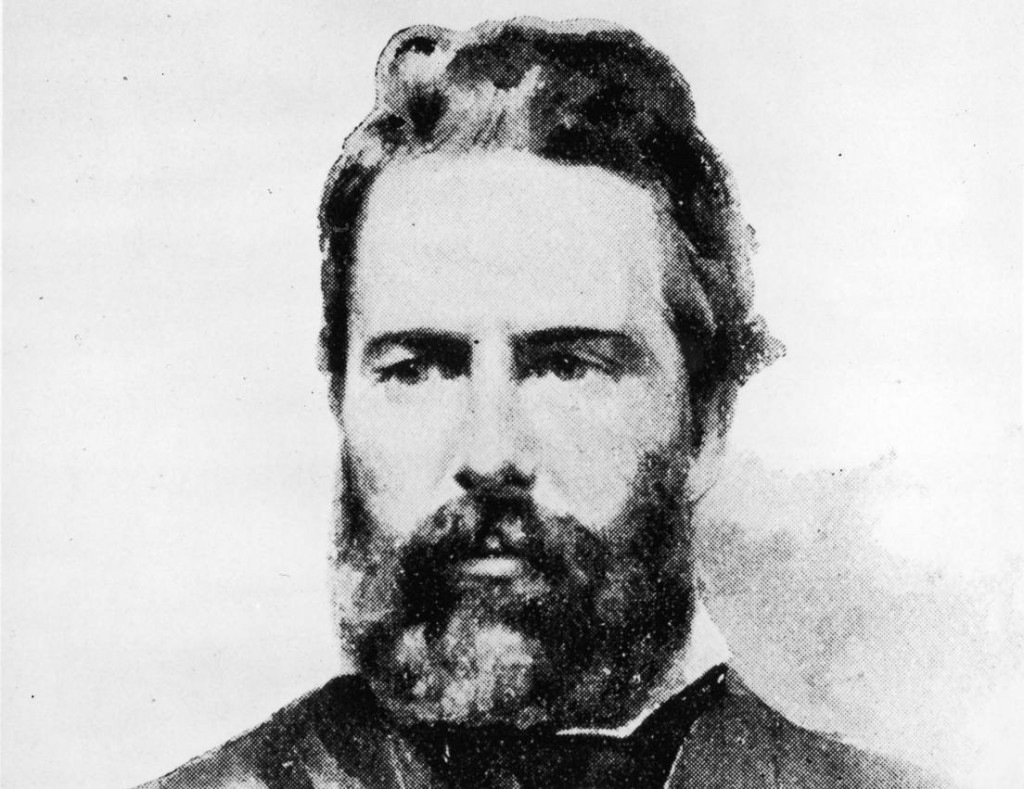The masterpiece Moby-Dick didn’t see much popularity until after Herman Melville’s death. Unfortunately for Melville, he was never able to see the impact that his great novel had on his readers. Today Moby-Dick still studied and loved by many. Let’s take a look at this influential authors life.

Herman Melville was born on August 1st, 1819 in New York City to his parents Allan and Maria Gansevoort Melvill. When Herman was just a tiny baby he became severely ill with scarlet fever. He recovered, but Herman’s vision suffered and his left eye was impaired the rest of his life.
Herman’s father Allan made a name for himself as a high-end importer and merchant. This allowed him to provide a very comfortable life for his wife and children. Unfortunately, Allan’s success didn’t last long and his family would soon suffer. Allan was borrowing quite a bit of money in order to finance and support his growing business. When the Melville family decided to move to Albany and become fur traders in 1830, the family’s wealth began to dwindle. Two years later Allan passed away and the finances began to disappear even quicker.
Allan’s death forced the Herman’s oldest brother to take over the family business. Herman also began working as a clerk at a bank in order to help contribute to the family’s bills. Herman was a very ambitious young man and during this time enrolled at Albany Academy and Albany Classical School. It was here that he was able to study literature and express his creativity as a writer. In 1837, Herman accepted a teaching job in Massachusetts, but returned to New York after he felt unfulfilled.
When Herman was only twenty years old, he set off on his first oceanic voyage. Setting sail as a cabin boy, Herman boarded the St. Lawrence and headed off across the Atlantic ocean. This voyage inspired Herman’s love of adventure, as soon as his voyage of the St. Lawrence ended Herman set off on another adventure. Herman accepted a job aboard the whaling ship, Acushnet. Melville’s journey aboard the Acushent inspired a great deal of Melville’s work that would soon make up his first three novels.
Only a year into his new voyage, Herman and his fellow companions deserted the Acushent. They were shortly captured by a group of cannibals on the Marquesas Islands. Eventually, Herman was rescued by a separate whaling ship, the Lucy Ann, about a month later. During his time spent on the Lucy Ann, Herman committed mutiny and was then jailed. Melville’s exciting and usual life continued as he escaped and eventually made his way back to the United States.
Luckily, Herman thought it wise to write about his daring adventures. When he returned home he immediately began working on what is now known as Typee: A Peep at Polynesian Life. His first novel was actually quite success, selling over 6,000 copies in the first two years after its publication.
After Melville’s first novel he also married a young woman by the name of Elizabeth Shaw. She was the daughter of Massachusetts chief justice, Lemuel Shaw. The newly weds moved to New York to live with Herman’s family during 1847. That same year Melville published his second novel Omoo, which saw the same success that Typee did.
In 1851, Melville published the novel that would define him as an author. Moby-Dick was published, but this novel didn’t do as well as Melville had hoped. His signature novel only sold 3,000 copies during Melville’s entire lifetime. Unfortunately, Moby-Dick and Melville’s subsequent novels sold poorly and sent the author into a pit of despair.
Herman tried to gain back the success of his first two novels, but nothing stuck. He quit writing for quite some time, but returned to his first passion with a poetry collection titled Battle-Pieces and Aspects of the War that was published in 1866. Herman finally decided to write another novel, but tragedy struck. Herman Melville died on September 28th, 1891 of a heart attack.
Herman gained the popularity that he once had back after his death. Publishers began to reprint his novels and people started to pay attention. Moby-Dick is regarded as on the greatest American novels to be written.